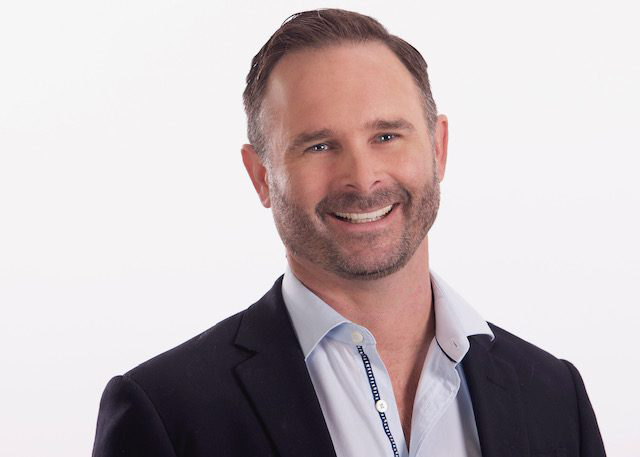Denial is a powerful barrier to overcoming addiction. It not only delays recovery but can also deepen the damage caused by substance abuse. Facing the truth about addiction may feel overwhelming, but it is an essential first step toward healing and reclaiming control over one’s life and addiction.
Knowing how to overcome denial in addiction can be tough. But, these tips below will help you break through denial and take the first step toward recovery.
Understanding Denial in Addiction
Denial is a psychological defense mechanism that allows people to avoid facing harsh truths or uncomfortable emotions. For those living with addiction, denial often serves as a way to minimize the severity of their substance use or its consequences. Common forms of denial in addiction include:
- Minimization – Downplaying the problem (“I only drink socially” or “Everyone experiments a little”).
- Rationalization – Offering justifications (“I only use drugs because of work stress”).
- Blame – Shifting responsibility to others (“If my partner wasn’t so critical, I wouldn’t turn to alcohol”).
Denial offers temporary relief but obstructs the path toward recovery. Recognizing it as a barrier, not a solution, is the first step to overcoming it.
Why Facing Denial is Difficult
Acknowledging addiction requires immense courage and vulnerability. Several factors contribute to the difficulty of overcoming denial:
- Fear of Judgment – Admitting addiction may feel like admitting failure.
- Shame or Guilt – These emotions can make it hard to confront one’s behavior honestly.
- Loss of Control – Substance abuse often starts as a choice but evolves into a compulsion. Denial offers the illusion of control, which can be hard to relinquish.
- Poor Cognitive functioning – Research also shows that people with denial tend to also have poorer cognitive functioning and great impairments in memory.
It’s crucial to understand that denial isn’t a sign of weakness but rather a defense mechanism shaped by fear and self-preservation.
Strategies for Overcoming Denial in Addiction
While breaking through denial isn’t easy, it is possible with the right mindset and support. Here are some strategies to help recognize and address denial:
1. Educate Yourself About Addiction
Understanding how addiction affects the brain and behavior can illuminate why denial occurs. Addiction alters brain chemistry, making it harder to make rational decisions or recognize the severity of the problem.
In addition, addiction also leads to changes in the brain’s reward system, making it difficult to resist the urge to use drugs or alcohol. In short, addiction is more than just a choice – it’s a chronic disorder that requires hard work to overcome. The sooner you learn that addiction is not simply a moral failing, but a disease that anyone can be affected by, the sooner you can break down the internal stigma that leads to denial.
2. Practice Honest Self-Reflection
Self-reflection is a critical tool for breaking denial. In fact, it’s part of the 12-steps of recovery in many addiction support programs as step 4 – taking a fearless moral inventory of yourself. Taking a step back and honestly evaluating your thoughts, actions, and behaviors can help you see the full scope of your addiction and its impact on your life.
3. Seek Feedback from Trusted Loved Ones
Denial often blinds people to how their actions affect others. Trusted friends or family members can provide valuable perspectives. Although it may be hard to hear, their feedback could be the push needed to take action.
Create a safe space for open conversations by:
- Asking direct but nonjudgmental questions (e.g., “How do you think my behavior has changed?”)
- Listening without interrupting or dismissing their concerns
- Thanking them for their honesty, even if the feedback feels uncomfortable
Sometimes, we may not realize the extent of our addiction until someone else points it out to us. It’s important to listen to these insights and use them as motivation for change.
4. Consider Professional Help
Denial in addiction is often too deeply ingrained to tackle alone. Addiction counselors and therapists are trained to help individuals explore the reasons behind their denial and develop healthier coping mechanisms. They use evidence-based techniques like cognitive-behavioral therapy (CBT), which can challenge distorted thinking patterns and promote self-awareness. CBT is just one of many behavioral therapies and treatments you might encounter in your journey toward recovery.

5. Attend Group Support Meetings
Support groups like Alcoholics Anonymous (AA) or Narcotics Anonymous (NA) provide a safe environment to share experiences, learn from others, and feel less isolated. Meetings also emphasize accountability, which can help individuals take responsibility for their actions instead of relying on denial. Hearing stories from others who have faced similar struggles can be incredibly validating, making you feel safer to get go of that denial.
6. Create a Vision of a Sober Life
Often, denial feels safer than imagining a life without substances. Building a clear vision of the rewards of sobriety—such as improved health, stronger relationships, and emotional stability—can motivate individuals to take the first steps toward recovery. Closing your eyes and visualizing moments of joy, peace, or achievement without substances can offer a glimpse of the possibilities on the other side of denial.
Take the First Step Toward Recovery Today
Breaking through denial is daunting, but it is the gateway to freedom from addiction. Whether you’re supporting a loved one or addressing your own struggles, know that help is available. At SEE Purpose Center for Addiction Treatment in Bloomfield, IN, we provide compassionate, evidence-based services to guide you on your recovery journey. With detox, inpatient care, and aftercare programs, we offer the tools you need to reclaim your life. Don’t wait to take the first step. Reach out to SEE Purpose Center today and begin your path to healing and hope.
FAQs
What is denial in addiction?
Denial in addiction refers to an individual’s refusal or inability to recognize the severity of their substance use or acknowledge its impact on their life. It often stems from fear, shame, or the desire to avoid painful emotions.
Why is denial so common in addiction?
Denial is common because addiction alters brain chemistry, making it harder for individuals to think clearly or objectively. Additionally, facing the truth can feel overwhelming, leading people to minimize, rationalize, or deflect their behavior.
Can friends or family help someone overcome denial?
Yes, loved ones can play a crucial role. Expressing concerns with empathy rather than judgment can encourage an individual to reconsider their stance. However, sharing feedback without professional guidance might not always be effective. Family therapy or intervention services could provide additional support.
What are some signs someone is in denial about their addiction?
Signs of denial include:
Refusing to acknowledge any problem
Shifting blame onto others
Justifying or rationalizing substance use
Downplaying the consequences (“One more won’t hurt”)
Becoming defensive when confronted
How can someone start tackling their denial?
The most important step is self-reflection. Journaling, seeking feedback from loved ones, researching addiction, and consulting a therapist are all helpful ways to begin breaking through denial.
Are there professional treatments for denial?
Yes. Therapy, particularly cognitive-behavioral therapy (CBT), can help individuals reflect honestly on their substance use and its consequences. Professional counseling also provides a safe environment to confront fears and shame that contribute to denial.
What happens after someone overcomes denial?
Once denial is addressed, individuals are better equipped to seek treatment and begin recovery. This could involve detox, inpatient treatment, therapy, and ongoing aftercare—all critical steps in building a sober life.
How can I encourage a loved one in denial to seek help?
Start by approaching the conversation with empathy. Avoid accusatory language and focus on expressing concern and support. Sometimes, involving a professional counselor or interventionist can help facilitate a productive discussion.




